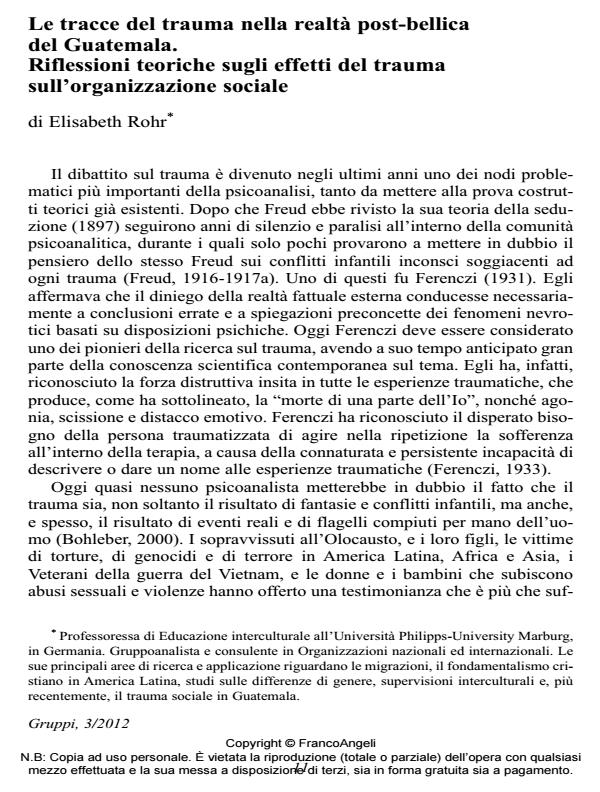Traces of trauma in the realities of postwar Guatemala. Theoretical reflections on the effects of trauma on social organization
Journal title GRUPPI
Author/s Elisabeth Rohr
Publishing Year 2013 Issue 2012/3 Language Italian
Pages 25 P. 11-35 File size 159 KB
DOI 10.3280/GRU2012-003002
DOI is like a bar code for intellectual property: to have more infomation
click here
Below, you can see the article first page
If you want to buy this article in PDF format, you can do it, following the instructions to buy download credits

FrancoAngeli is member of Publishers International Linking Association, Inc (PILA), a not-for-profit association which run the CrossRef service enabling links to and from online scholarly content.
Recent psychoanalytic debates about trauma have followed at least two controversial arguments: one adheres to a rather clinical notion of PTSD, focusing on the individual case of a traumatized person, whereas a more political option stresses the point that trauma is mostly the result of man-made disaster. The article follows this line of argument, exploring theoretical approaches that have connected trauma with its political and social context, focusing on the societal impact of mass trauma. These theoretical implications are then transferred to illustrate the traumatizing situation of postwar Guatemala, showing how the denial of mass trauma leads to chronic social violence and the inability to solve conflicts in nonviolent ways. Finally, the analysis of a case study in Guatemala serves as an example to demonstrate how mass social trauma that lacks acknowledgment invades and contaminates all work relationships within a given social institution.
Keywords: Trauma, Guatemala, violence, symptoms in social institutions, institutional context, case-study.
Elisabeth Rohr, Le tracce del trauma nella realtà post-bellica del Guatemala. Riflessioni teoriche sugli effetti del trauma sull’organizzazione sociale in "GRUPPI" 3/2012, pp 11-35, DOI: 10.3280/GRU2012-003002